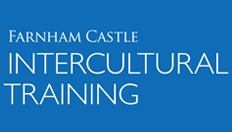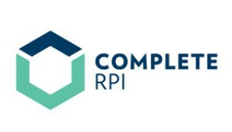
Are you relocating to the uk?
If the answer is yes, and you are relocating to the UK, then GOHK2UK is for you.
GOHK2UK is a relocation management solution for Hong Kongers moving to the UK as created together with our referral partners. Our service covers children’s education face to face or online, the new BN(O) Visa, UK taxes and financial planning, intercultural training and UK real estate. We can advise and manage all aspects of your move and guarantee to find a tailor-made solution that suits you and your family’s needs.
Whether you need advice on one element of your move or a full suite of services to move yourself and your family, contact any one of us and begin your journey.
panoba’s Co-founders & Directors Debbie Gispan & Nicky Sakpoba
How do I find school places for my children if I move my family to the UK?
There are a myriad of different options when it comes to finding the right school for your children and choice of school will often depend on where you live and the ages of your children. At secondary level some schools will require entry tests and interviews, while others are non-selective and will accept children of all abilities. British schools are very used to welcoming families from around the world and have strong pastoral care systems in place. You may be looking for a school where your child can continue their extra-curricular strengths in music, arts, performing arts or sports, or a school which can offer excellent science and maths teaching and facilities. An educational consultant can help you navigate the school search and application process, advise on suitable school choices and organise visits.
How soon should I start applying to schools in the UK?
All schools have different timelines when it comes to the admissions process and demand for school places does vary greatly depending on area and the type of school a family is looking for. Some of the top London prep schools see huge demand for places and therefore putting a child’s name on the list is essential several years before entry. Similarly, for competitive entry to some of the elite and highly academic senior schools at Year 9 (age 13), entry assessments take place in Year 6. However, for the majority of senior schools, the application and assessment timeline runs between 12 and 18 months before the September of entry. The best advice for parents is to remember that there will be a greater choice of schools that will accept applications when the school search is started early. For relocating families, school applications can often be made in advance of your arrival in the UK. An educational consultant can advise on application windows for UK schools and ensure this fits with your relocation timeline.
Can I get assistance with family relocation services including schools for my children?
When relocating to the UK with a family, it is important to decide on a location which will have the right combination of available properties, good transport links, highly rated local schools and also access to other family services. A UK based relocation expert with local knowledge can advise on locations which incorporate all of these criteria and ensure that you and your family have a ‘soft landing’ when you arrive in the UK and in the months following your arrival. They can assist with setting up property viewings and negotiating with real estate agents, school visits and applications, shipping furniture and belongings, setting up home and registering for banks, doctors and other local services and amenities.
Please contact Panoba for a consultation.
Do I need to pass an English language test?
Many visas to the UK are dependent on you demonstrating a certain level of ability in the English language. The government has a list of tests which it accepts for this purpose (known as SELTs or Secure English Language Tests). While there are a few available, the most well known and widely available are the IELTS test and the PTE test. Both of these have several versions.
The version you take will depend mostly on the visa type you require. Students often have much the visa clearance established by the school or university they apply to so you MUST check with institution as to exactly which test they accept.
For non-students, you should ask your immigration lawyer to confirm which test you will need. ITS is an official member for both PTE and IELTS and we can teach courses and help you enrol.
How do I prepare my children for school entrance tests?
School entrance requirements vary enormously depending on the school type, its popularity and year groups for which you are applying.
Generally speaking, younger children have a more relaxed interview plus a few cognitive tests whereas older children may need to demonstrate examined ability across a range of academic subjects.
There are two key things you need to do:
1. Establish with your educational consultant which tests your child will need Draw up a prep plan with ITS to efficiently get this prep done without overburdening and stressing your already busy child(ren)
How do I prepare my children for school interviews?
Younger children need to have a little bit of experience just meeting a new adult and then having chat about themselves. They need to practice talking spontaneously and gain the confidence to so. A quiet child cannot pass an interview because the school will not learn anything about them.
Older children need to be more polished. Quieter introverts need to build the confidence to speak about their passions. louder extroverts may need to learn to reign it in. Everybody needs to be natural and not appear ‘coached’.
For all children, they must avoid the trap of pre-empting questions or saying what they think the school wants to hear. Coaching for interview is therefore really quite important because so many people do not really understand what is truly involved.
Please contact ITS for a consultation.
Why should I review and take advice on my finances before moving to the UK?
Hong Kong has a simple, low tax system, with no income or capital gains taxes on investments. The maximum rate of salary tax is the flat rate of 15%.
In comparison, the UK operates a complex and high tax system. Typically, with a 45% top rate of income tax, but in some circumstances, you could pay an effective income tax rate of 60%. You will also be subject to National Insurance, a type of taxation, on any employment or self-employment income.
There are a number tax and financial planning opportunities that exist that need to be considered well in advance and as part of a broader overall plan. Some of this planning needs to be executed before you leave Hong Kong. Some planning can only be undertaken once you are resident in the UK.
Not getting this right could result in you having to delay your move or if that’s not possible, potentially face a significant and totally avoidable tax bill.
Will I need to pay UK tax on my non-UK investments?
The default answer is yes. Any interest, dividends and realised capital gains from overseas will be subject to UK taxes.
Your first step however is to establish what your domicile is and how this may be affected by your move to the UK.
If you are non-UK domiciled, you can elect to be taxed on the Remittance Basis. An advantage of this is that investment income and capital gains you make whilst UK resident that are not brought into the UK will not be subject to UK taxes.
This is a very complex area where specialist professional advice should be sought. Getting this wrong can have serious irreversible consequences, potentially many years in the future.
When should I start the process of reviewing my tax and financial planning?
In short, as soon as possible.
It may be advisable to sell assets or hold them in more tax efficient ownership structures and this takes time, especially with illiquid assets such as property.
The UK tax year runs from 6th April to 5th April. Under certain circumstances, the tax year can be split into 2 distinct periods; an earlier period of non-UK tax residence and a latter period of UK tax residence. However, whether this ‘split year’ treatment will apply is not always clear. Therefore, avoid any uncertainty by carrying out any planning in the UK tax year before your arrival.
Please contact Charlton House for a consultation.
What is the United Kingdom’s new BN(O) Visa Scheme?
In January 2021 the UK Government will launch a new visa scheme aimed at providing a more advantageous route of migration to all individuals with British National (Overseas) eligibility and their dependants. The new BN(O) Visa will enable successful applicants to reside and work in the UK for a period of up to 5 years before potentially becoming eligible for settlement (Permanent Residence) in the UK (based on a continuous period of 5 years residence in the UK).
It is no longer possible to become a BN(O) citizen if you are not already. But if you have the eligible status and don’t currently hold a BN(O) passport, you may be able to apply for that passport and/or make an application under the new BN(O) Visa scheme.
Can I bring my family to the UK under the new BN(O) Visa Scheme?
The visa scheme will enable a BN(O) applicant to bring immediate family members to the UK with them. This will include a spouse or dependent children who may not have BN(O) status themselves. In some cases it may extend to other family members on a discretionary basis where consideration may be outside of the Immigration Rules.
In all cases where an application for a family member is successful, the dependant family will have the same visa rights as the main applicant ie a right to reside and work in the UK for a period in line with the main applicant. They will also have the potential right to apply for settlement (Permanent Residence) in the UK.
What can I do if I am not eligible for the BN(O) Visa Scheme?
The UK Immigration Rules are being overhauled in January 2021, in part, to implement the new legislation relating to European nationals entering the UK following Brexit. There are a number of routes of migration for EU and non-EU nationals wishing to enter the UK. Visa categories for skilled workers, spouses of British citizens, Investors to the UK, Entrepreneurs and Representatives of overseas businesses are available for consideration. There are also routes for students and the Youth Mobility Scheme for which the UK has a reciprocal arrangement with Hong Kong.
If you are thinking of migrating to the UK you should discuss your individual circumstances with an immigration lawyer to ensure that the most advantageous route is selected for your personal situation. The UK Immigration Rules are complex and, in the most part, particularly prescriptive in terms of the required content and form of supporting documents. A specialist immigration adviser will ensure you find the best long term solutions to protect you and your family.
Please contact Antonia.grant@bowers.law for a consultation.
What do we do?
We are Cultural Training Specialists, training people and teams to communicate, influence and build more successful business relationships internationally and across cultures, in order to work more effectively in the global workplace.
By understanding the cultural values, beliefs, behaviours, similarities and differences that affect international business practices and communication preferences, we help people improve their cultural intelligence and increase their potential.
Our training promotes cultural awareness and a global mindset, encourages inclusion, achieves better collaboration and co-operation for international teams, and supports individuals and businesses to address cross-cultural challenges and achieve goals.
How do international assignees and their families benefit from cultural training for global mobility?
The cost of assignment failure and premature returns from international assignments is immense, not only to businesses, but also personally to individuals and their families. The two most common reasons for assignment failure are severe family problems, when the assignee’s partner or family fails to adapt to the new country and culture, and failure of the assignee to adapt to the new country and business culture (after what is commonly called the ‘honeymoon’ period). Often, assignees and their families are under-prepared, with an understanding of the bare minimum of what interculturalists call the tip of the cultural iceberg, which are those aspects of a culture commonly understood or stereotypical.
The best cultural training (which can include a family programme) offers a deeper understanding of a culture (what lies beneath the surface). It encourages individuals to be self-aware, whilst providing them with the cultural intelligence and practical advice that properly prepares them for living and working in a specific country or culture. It helps assignees set expectations prior to arrival, and to understand what may be a different approach to business, developing the cultural awareness that will help enhance relationship building. It provides assignees with improved confidence in their interpersonal effectiveness and communication skills, by highlighting similarities and differences, and addresses potential cultural challenges, offering strategies to adapt for success.
How is identifying and understanding the key ‘drivers’ that influence attitudes, behaviours and communication styles in the global workplace of practical benefit to international business?
Our Cultural Training Programmes are delivered by Interculturalists and Country experts. Their experience in international assignments, intercultural management and business skills training, combined with in-depth country expertise, knowledge of business culture, and the specific cultural values, attitudes and behaviours of target nationalities, enable them to offer invaluable insight, practical advice and skills training, across all roles and seniority.
They identify the key ‘drivers’ and teach participants how to use this knowledge to adapt message, information and working style. The practical benefits to business are achieved when individuals recognise, analyse and manage differences, for example in radically different thinking styles, approaches to time, feedback, deliverables, deadlines, negotiations, handling meetings and presentations, and understanding decision making and project management.
Can cultural training be effective in improving the performance of cross-cultural teams (remote or co-located)?
In our increasingly digital and globalised world, engagement across cultural borders is an absolute necessity for effective and connected international teamwork. There are many potential benefits arising from inclusive diversity, including co-learning, talent development and innovation. Working in different cultural environments can also generate numerous challenges for team members, managers and global leaders.
Those developing, leading and working in international teams need both self and cultural awareness in order to operate effectively and to establish shared meaning and common purpose. Even when individual team members are enthusiastic, different approaches to communication and issues such as trust, hierarchy, motivation and managing conflict often cause unintentional ambiguity, misunderstanding and frustration.
Cultural training not only brings greater awareness and understanding of cultural differences, but improves cooperation, collaboration and performance for cross-cultural teams, helping team members to build better, more connected relationships and greater levels of understanding, trust and respect.
Please contact Farnham Castle Intercultural Training for a consultation.
Established in 2001, Complete RPI provide a unique asset managed approached to the search and acquisition, Letting and management of UK real estate. With offices in HK and UK complimented by multilingual staff who have been through the BN(O) process we are perfectly positioned to guide through the process.
Please contact Complete RPI for a consultation.







